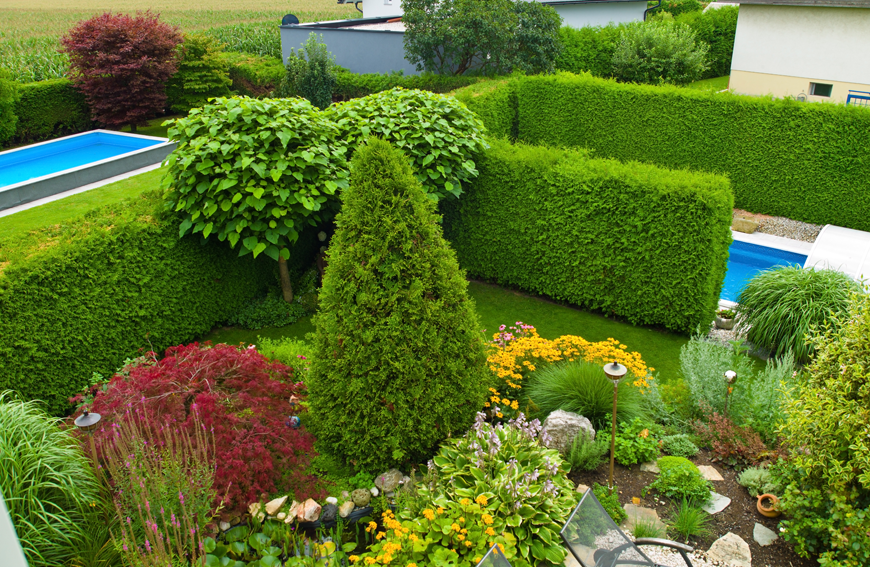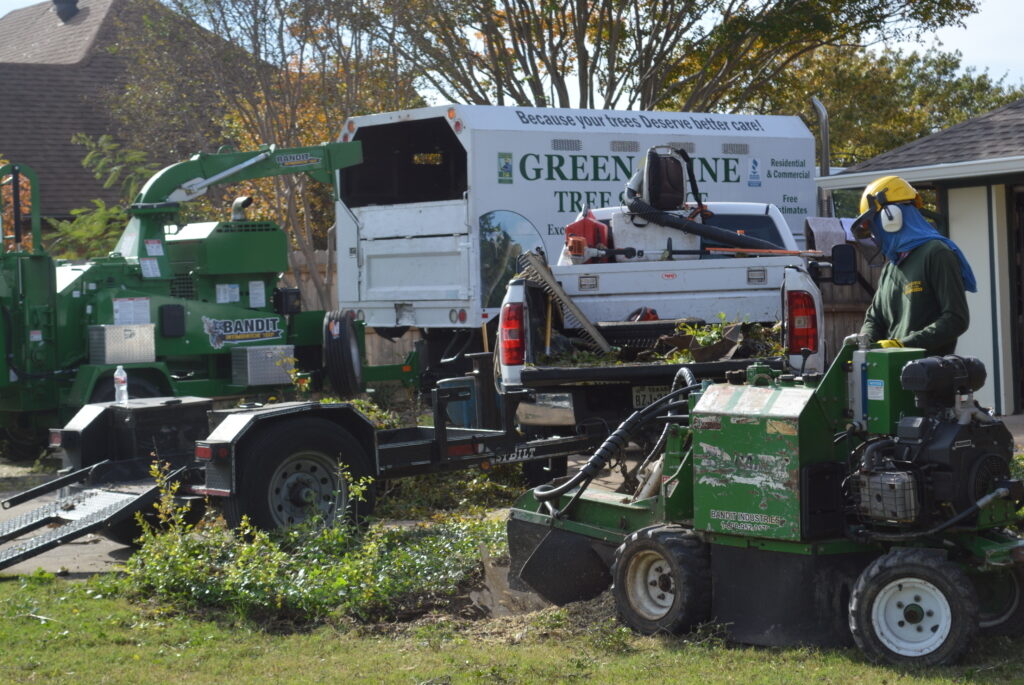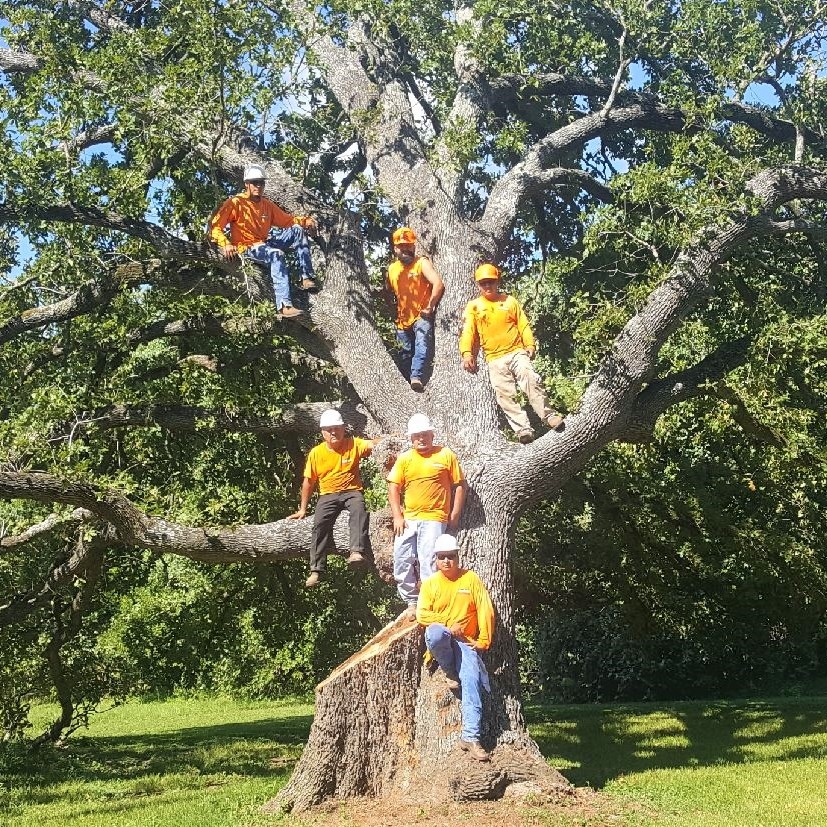Fast Growing Privacy Trees
Introduction
Ever feel like your yard is more visible than you’d like? Maybe you’ve got a nosy neighbor, or you’re simply looking for more seclusion. That’s where fast-growing privacy trees come in! These natural barriers not only give you peace and quiet, but they also transform your yard into a lush, green sanctuary. In this article, we’ll explore everything you need to know about fast-growing privacy trees, including the best species to plant and how to care for them.
Why Choose Privacy Trees?
The Benefits of Natural Privacy Barriers
Planting trees is one of the best ways to create a natural privacy screen. Unlike fences, trees grow taller, offer shade, and reduce noise from the outside world. They’re environmentally friendly and, as they grow, they become even more beautiful. Plus, who doesn’t love the look of a well-placed row of trees?
Cost-Effectiveness of Planting Trees
While privacy fences can be expensive and require maintenance, privacy trees are often a one-time investment. Sure, they need a bit of care, but in the long run, they provide more than just privacy—they offer beauty, cleaner air, and habitat for wildlife.
What to Consider When Choosing Privacy Trees
Climate Compatibility
Before you rush to the garden center, you need to know what trees thrive in your climate. Some fast-growing trees love the heat, while others prefer cooler temperatures. Make sure the tree you choose is suitable for your location, or you might be disappointed with the results.
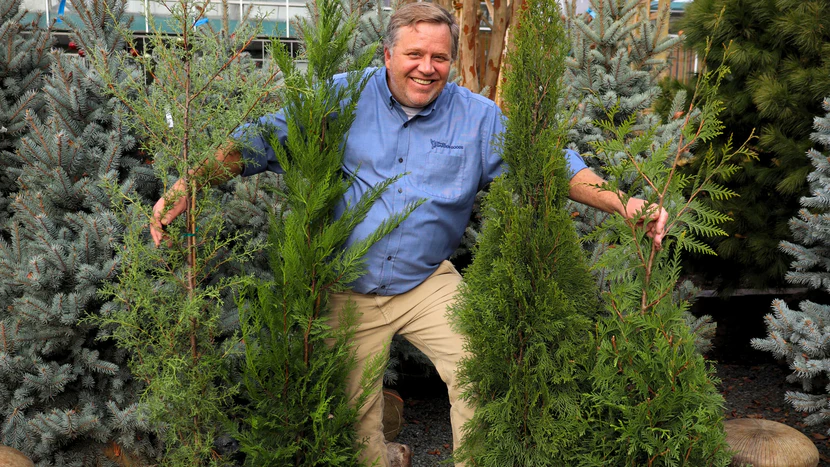
Growth Rate and Size
Fast-growing doesn’t always mean the same thing for every species. Some trees shoot up quickly but stay narrow, while others spread wide. Think about the space you have and how big you want the trees to get.
Maintenance Requirements
Every tree requires some care, but certain species need more TLC than others. If you’re not keen on constant pruning or leaf clean-up, you’ll want to choose a tree that’s easy to maintain.
Top Fast Growing Privacy Trees
Leyland Cypress
The Leyland Cypress is a superstar in the world of privacy trees. It can grow up to 4 feet per year, making it one of the fastest-growing options available.
Growth Rate and Features: Grows quickly and can reach up to 70 feet tall. Its dense foliage is perfect for creating a thick privacy wall.
Optimal Growth Environment: Thrives in abundant sunlight and well-drained soil.
Thuja Green Giant
If you’re looking for a hardy tree that grows fast and requires little care, the Thuja Green Giant is your best bet.
Why It’s a Popular Choice: It’s disease-resistant and can thrive in various climates.
Growth Speed and Care: Grows 3-5 feet per year and can reach 50-60 feet tall.
Bamboo
Technically not a tree, but bamboo deserves a spot on this list due to its incredible growth speed.
Fastest Growing Option: Some bamboo species can grow over a foot per day!
Varieties and Uses: Choose clumping varieties for better privacy and control.
Eastern Red Cedar
Eastern Red Cedars are hardy, adaptable trees that provide excellent privacy.
Adaptability and Benefits: Can thrive in poor soil and tough conditions.
Wildlife-Friendly Privacy Tree: Birds love nesting in these trees, adding to their charm.
Silver Maple
For those wanting quick shade along with privacy, the Silver Maple is an excellent option.
Quick Shade and Privacy: Grows up to 3-5 feet per year and spreads wide.
Pros and Cons: While fast-growing, its roots can be invasive, so plant carefully.
Arborvitae
These evergreen trees are known for their dense foliage, making them perfect for tight spaces.
Compact and Dense Foliage: Creates a natural privacy wall that’s hard to see through.
Suitability for Different Yards: Ideal for small to medium yards where space is limited.
How to Plant and Care for Privacy Trees
Proper Spacing for Fast Growth
Give your trees room to grow. If planted too closely, their growth may be hindered. Check the spacing requirements for each species.
Watering and Fertilization
Fast-growing trees need consistent watering, especially in the first few years. Fertilizing them annually helps keep them healthy and growing strong.
Pruning Tips for a Healthy Growth
Pruning helps keep your trees looking neat and encourages healthy growth. Remove dead branches and trim the tops if they’re getting too tall.
Mistakes to Avoid When Planting Privacy Trees
Overcrowding
It’s tempting to plant trees close together for immediate privacy, but overcrowding can lead to weak growth and unhealthy trees.
Choosing Incompatible Trees for Your Area
Not all trees will thrive in your region. Make sure the species you choose is suited to your climate and soil type.
Best Time to Plant Privacy Trees
Seasonal Considerations
Fall is often the best time to plant trees because the cooler temperatures help reduce transplant shock. Spring is also a good option if your climate has harsh winters.
Preparing Your Yard for Planting
Make sure to remove any weeds and debris from the area before planting. Dig large enough holes for the roots to spread out, and consider adding mulch to retain moisture.
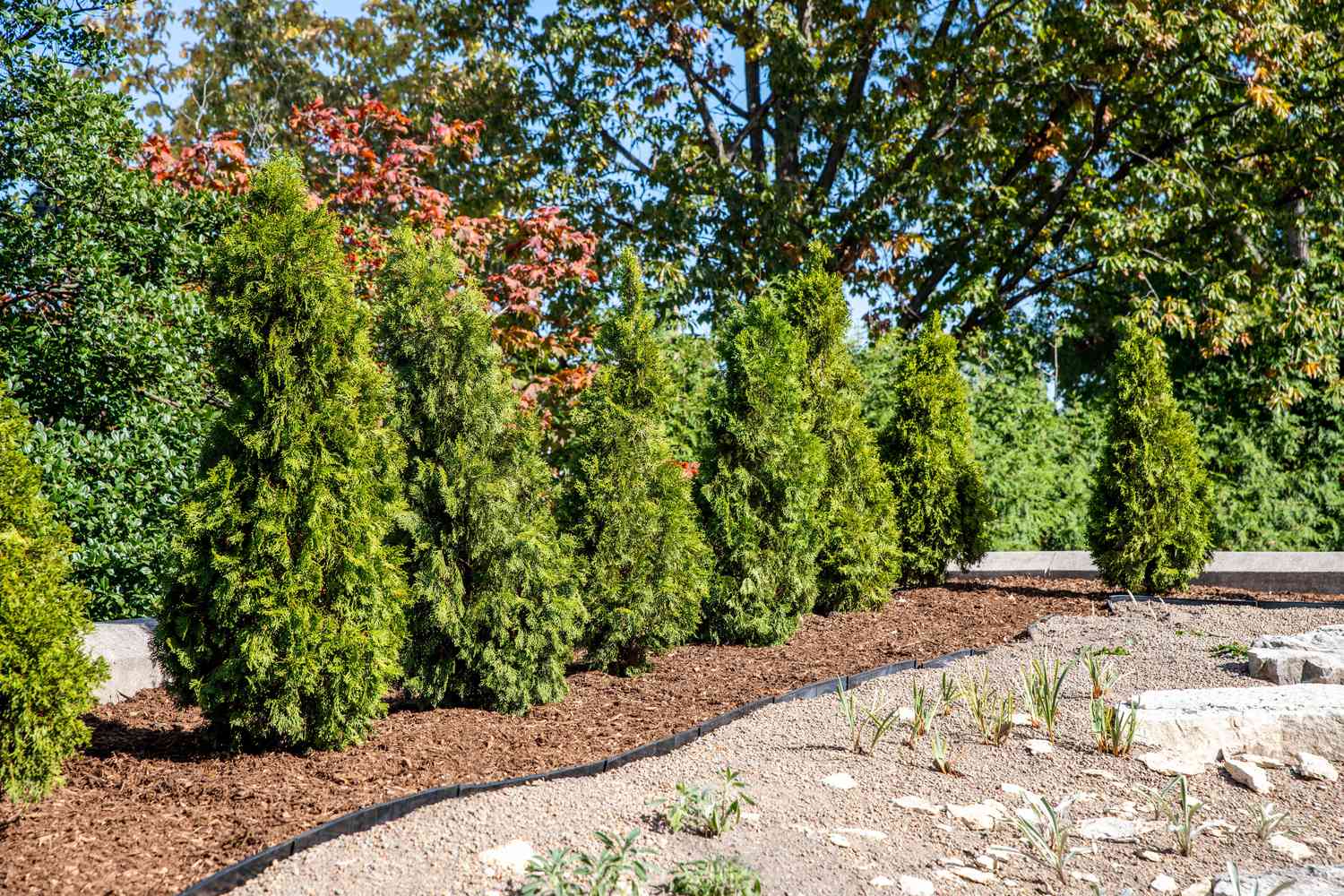
Factors That Influence Tree Growth
The growth rate depends on factors like soil quality, sunlight, and water. Regular care and attention can speed up the process.
The Environmental Benefits of Privacy Trees
Carbon Sequestration
Trees absorb carbon dioxide and release oxygen, helping reduce your carbon footprint. The more trees, the better for the environment!
Wildlife Habitat
Privacy trees like Eastern Red Cedar provide shelter for birds and other wildlife, adding life to your backyard.
Noise Reduction and Air Quality
A thick row of trees can reduce noise pollution and improve the air quality around your home.
Adding Shrubs and Ground Cover
Layering trees with shrubs and ground cover adds depth to your landscape and creates a more natural look.
Conclusion
Fast-growing privacy trees are a fantastic, natural way to enhance your property and get the seclusion you desire. With species like Leyland Cypress, Thuja Green Giant, and
